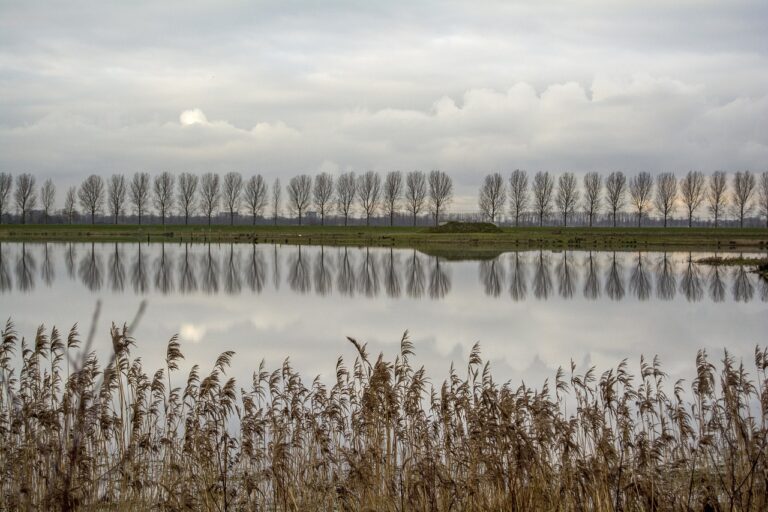The impact of sustainable beekeeping practices on agritourism
Sustainable beekeeping practices play a crucial role in promoting the growth of agritourism, which involves visitors experiencing and learning about agricultural activities on farms. Beekeeping, in particular, has a significant impact on agritourism due to its role in supporting ecosystems, food production, and local economies. This article explores the positive effects of sustainable beekeeping practices on agritourism and highlights the importance of incorporating these practices into farm operations.
Benefits of sustainable beekeeping practices
Sustainable beekeeping practices focus on protecting bee populations, promoting biodiversity, and using environmentally friendly methods to manage hives. These practices not only benefit bees and the environment but also have a positive impact on agritourism. Here are some of the key benefits of sustainable beekeeping practices:
1. Boosting crop pollination
Bees play a vital role in pollinating crops, which is essential for food production and agricultural sustainability. Sustainable beekeeping practices help maintain healthy bee populations, ensuring efficient pollination of crops. In agritourism settings, visitors can witness the importance of bees in agriculture and learn about the symbiotic relationship between bees and crops.
2. Enhancing biodiversity
Sustainable beekeeping practices contribute to biodiversity conservation by providing habitat for bees and other pollinators. By creating bee-friendly environments on farms, agritourism operators can attract a variety of bee species, contributing to overall ecosystem health and resilience.
3. Supporting local economies
Beekeeping can be a profitable enterprise for farmers, generating income through honey production, pollination services, and the sale of bee-related products. Sustainable beekeeping practices help farmers maximize their revenue potential while promoting local economic development. Agritourism activities centered around beekeeping can further boost local economies by attracting visitors to farms and creating new revenue streams.
4. Educating the public
Agritourism offers a unique opportunity for the public to learn about sustainable farming practices, including beekeeping. Visitors can engage in hands-on activities such as hive inspections, honey tasting, and beekeeping workshops, gaining a better understanding of the importance of bees in agriculture and the environment. By promoting education and awareness, sustainable beekeeping practices contribute to a more informed and environmentally conscious society.
Challenges of sustainable beekeeping
While sustainable beekeeping practices offer numerous benefits to agritourism, they also come with challenges that farmers and beekeepers must address. Some of the key challenges include:
1. Disease management
Bee colonies are vulnerable to various diseases and pests, which can have a detrimental impact on bee populations. Sustainable beekeeping practices involve implementing strategies to prevent and manage diseases, such as regular hive inspections, biosecurity measures, and integrated pest management. Farmers and beekeepers must stay informed about the latest research and best practices in disease management to protect their bees and maintain healthy colonies.
2. Environmental factors
Climate change, habitat loss, and pesticide exposure are significant environmental factors that affect bee health and viability. Sustainable beekeeping practices aim to mitigate these factors by creating bee-friendly habitats, reducing pesticide use, and implementing climate-resilient practices. Farmers and beekeepers must adapt to changing environmental conditions and incorporate sustainable practices to ensure the long-term viability of their beekeeping operations.
3. Regulatory compliance
Beekeepers must comply with regulations and guidelines related to beekeeping, honey production, and pollination services. Sustainable beekeeping practices often involve certification programs, quality standards, and best management practices that ensure the welfare of bees and the safety of bee products. Farmers and beekeepers must stay up to date on regulatory requirements and industry standards to maintain compliance and uphold the integrity of their operations.
FAQs about sustainable beekeeping and agritourism
1. What is sustainable beekeeping?
Sustainable beekeeping refers to beekeeping practices that prioritize the health and well-being of bees, promote biodiversity, and minimize negative impacts on the environment. Sustainable beekeepers strive to maintain healthy bee populations, support pollinator diversity, and use environmentally friendly techniques to manage hives.
2. How does beekeeping contribute to agritourism?
Beekeeping plays a key role in agritourism by providing educational and recreational opportunities for visitors to learn about bees, honey production, and pollination services. Agritourism activities related to beekeeping can attract tourists, generate revenue for farms, and promote environmental awareness and conservation.
3. What are the benefits of incorporating sustainable beekeeping practices into agritourism operations?
Incorporating sustainable beekeeping practices into agritourism operations can boost crop pollination, enhance biodiversity, support local economies, and educate the public about the importance of bees in agriculture and the environment. Sustainable beekeeping practices help farmers and beekeepers maximize their revenue potential while promoting environmental stewardship and sustainability.
Conclusion
is substantial, with benefits ranging from enhanced crop pollination to increased biodiversity and economic opportunities. By adopting sustainable beekeeping practices, farmers and beekeepers can not only improve the health and viability of bee populations but also attract visitors to their farms, educate the public, and contribute to local economic development. As agritourism continues to grow in popularity, sustainable beekeeping will play an increasingly vital role in shaping the future of agriculture and environmental conservation.







